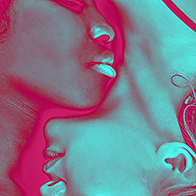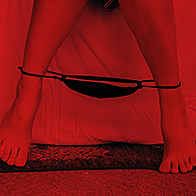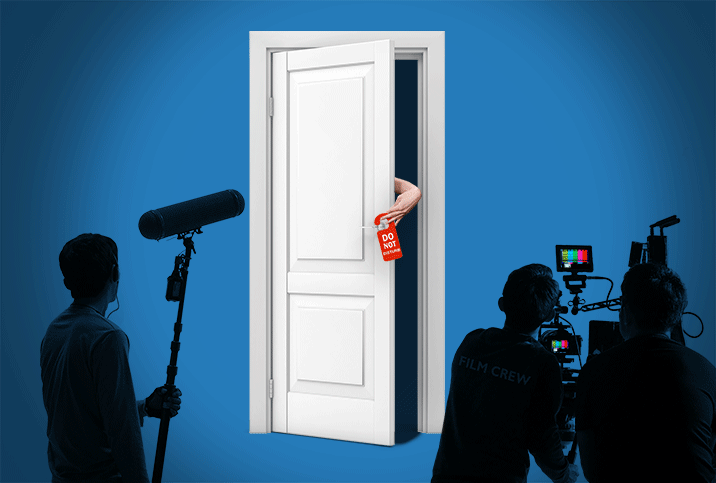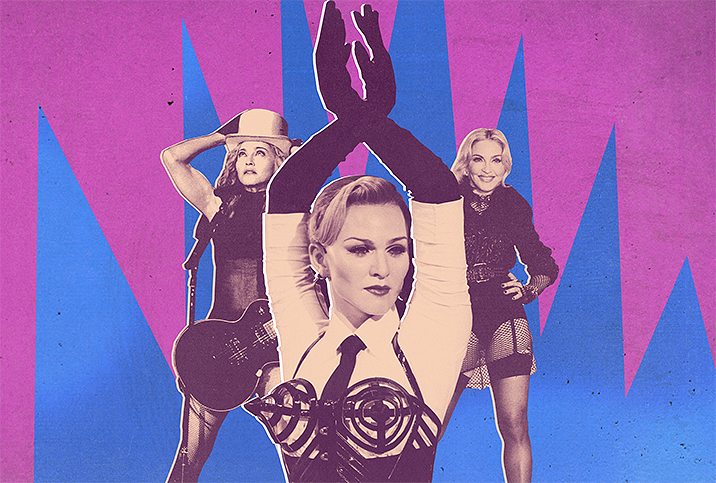Reexamining the 'Rock Star' Social Mythos
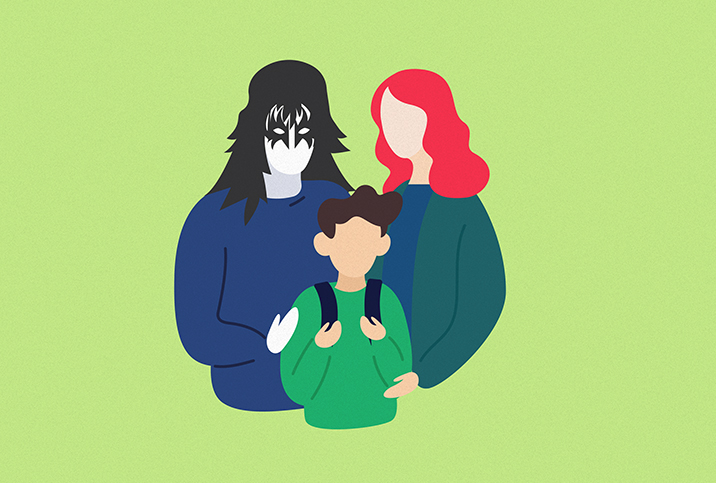
When Meschiya Lake first started chasing her musical ambitions, she didn't really think about how her job might affect her personal relationships.
"I would spend six to eight hours a day writing emails, booking gigs for myself and then scheduling the band," said Lake, a New Orleans-based singer, songwriter and multi-instrumentalist who has been performing and touring for the better part of two decades. "And, on top of that, forming a DBA [doing business as], forming a business, and also doing the financial aspect of it and practicing, trying to keep my material up, writing songs…I mean, there aren't enough hours in the day for it.
"I worked a lot. My life was just kind of dedicated to music," she added.
You might think living as a touring or gigging musician means you're constantly at the heart of the party. Many people see only the brightest, most exciting aspects of life on the road and onstage, but the glitz and glamour often outshine the elbow grease required of most modern musicians and performing artists.
"I'm not saying I haven't had sex, drugs and rock 'n' roll in my career, either, but you know, it's a lot easier in your 20s," Lake said.
All that glitters doesn't lead to gold
"I'll say that it's not as glamorous, a lot of times, as people think it is," said Noah Young, a recording and performing bassist who has operated out of New Orleans for 11 years and toured both nationally and globally. "There's a lot of work to be done. So it's not like there's that much time to be meeting people and hanging out after the gig. It's definitely more work than a lot of people think from TV shows [and] movies."
Musicians and performing artists can also be vulnerable to economic and social risks in a way people with more traditional job structures are not. Concepts such as unemployment insurance and job-site protection are foreign to many independent and moderate- to low-income performers. The very nature of performance requires that those individuals who we look to for entertainment are often the most at-risk. Their very livelihood requires making immense sacrifices in one direction or another, be it in terms of social opportunity or personal health.
"The pandemic has definitely changed the social aspects of touring a lot," Young said. "Mostly, the band has been trying to stay away from the audience, which is a bummer, but also compared to not being able to work at all, it's not so bad."
'They see the party that we have to bring, so I think it's safe to assume that a fair amount of people think it's like that all the time for musicians.'
Higher-earning professions are often relatively immune, one way or another, to the passing economic conditions which impair income opportunities for many workers of different colored collars. Artists and entertainers don't really have the type of career safety nets to fall back on that many people take for granted.
People think social media and remote streaming technologies have revolutionized art and entertainment industries for the better, and in some cases that might be true, but the more space there is between an audience and a performer, the more opportunity there is for third-party platforms designed to profit off the efforts of independent creators. At low- and median-income levels, musicians rarely benefit from streaming and distribution services in a commensurate amount compared to the people selling advertising alongside art.
If you've never gigged for a living, you probably can't empathize with the effort it requires. When a musician really does their job well, the audience is lost in the apparent ease with which the job is done.
"They see the party that we have to bring," Lake said. "So I think it's safe to assume that a fair amount of people think it's like that all the time for musicians. Really, that's just like a tree or a flowering plant. There's the flower on top, but there's the entire system underneath that you don't see which is the actual core of the plant."
Art dominating life
Having a family or even a sustainable social life of any kind can be incredibly difficult for anyone, but especially for musicians. Lake has a daughter who is about to turn 5 years old, but she said that in the early days of her career, there simply wasn't time or space to think about starting a family.
Even in the most optimistic familial outlooks for artists, the craft often has to come first.
"I always had in my head that I wanted to get married and have kids and have a somewhat stable life as a touring musician," Lake said. "I'd probably marry somebody that I can work with because otherwise, you don't really have the time for it. It's an incredible strain on your relationships if you're on tour all the time. It's really hard to maintain any relationship, friendship or otherwise."
At the peak of her career, Lake said she was doing 250 gigs or more a year, and that kind of effort means very little time left over for an artist's personal and romantic life.
Does the burdening nature of being a self-employed performing artist mean musicians make sacrifices in their personal growth? Perhaps so within the context of the clichéd "rock star" narrative, but oftentimes, being a musician actually means having to develop an even stronger set of collaborative, intuitive and communicative skills and practices.
From the artists' outlook
Musicians often bear witness to humanity's rawest and most authentic moments, especially among group social behaviors. Some of these observations contain poignant aspects related to life, love, relationships and, of course, the blues.
"Since things have opened back up, obviously, people are really excited to be out seeing each other again and seeing music," Young said. "It definitely feels like audiences are more talkative and chatty, which is maybe not inappropriate in some situations but definitely is in others. It can feel, sometimes, disrespectful to the band."
His advice for those audiences: "If you really like the music, shut the f--k up and listen to the music."
People don't always click onstage, but when they do, it can create fertile soil for relationship growth. Of course, each participant has to listen for this to happen. Lake has been working with some of the same musicians for 14 years, a milestone few people see in their own relationships personally, professionally or romantically.
In the deliriously paced age of dating apps and dialogue within an echo chamber, we often forget relationships are built by a process of mutually respectful engagement and willingness to progress as an individual. This shared drive can lead to a fair and honest exchange and an understanding of values, and allow for a shared sense of physical and metaphysical prosperity.
New Orleans doesn't cover a lot of ground, but it has a vibrant and self-sufficient music and arts scene, full of much-needed, communal "vibes." As the world at large gets bigger, faster and busier, it often feels like the individual spirit of interpersonal exchange is lost. In the Crescent City, you get big-town entertainment with all the charm of small-town familiarity.
Depending on your vantage point, this is a good or bad trait.
"One way it's different is that it's a relatively small city with a relatively tight-knit social scene," Young said. "My ex-girlfriend had been pursued by at least a few musician friends of mine, which is fine but maybe a little awkward. [For people in bigger cities], I bet they enjoy the anonymity a little more than we have in New Orleans."
Is anything truly lost when a person loses a degree of anonymity, though? It's hard to say where the line is drawn between professional ambiguity in the arts and social anonymity within a thriving throng of people.
"If you're into the same kind of music and you hang out in the same places [in New Orleans], sometimes you'll run into the same people, you know, like four times a week," Young continued. "These days, I'm playing more gigs at venues where there's a little more separation between the audience and performer. And, in a lot of ways, that can be good. But I guess as far as dating and romance, maybe in some ways, it's a little more isolating, too."
Say it in a stanza or less
Clearly, art imitates life. We've all felt a little more isolated while feeling a little overwhelmed with one another in recent years. Increased quantity of exposure rarely equates to increased quality.
With that being said, you should never lose faith in poets and songwriters, because even as they live the same struggles, they can tie up the relevant lessons in an easier bow.
"Relationships are key and the most important things in life, whether it's your relationship to your houseplant that you water, which in turn helps that plant gives you cleaner air, or your children, the people that you play music with or your friends and your lovers," Lake said. "There's a reciprocation process there that needs to be made of mutual respect and communication."







